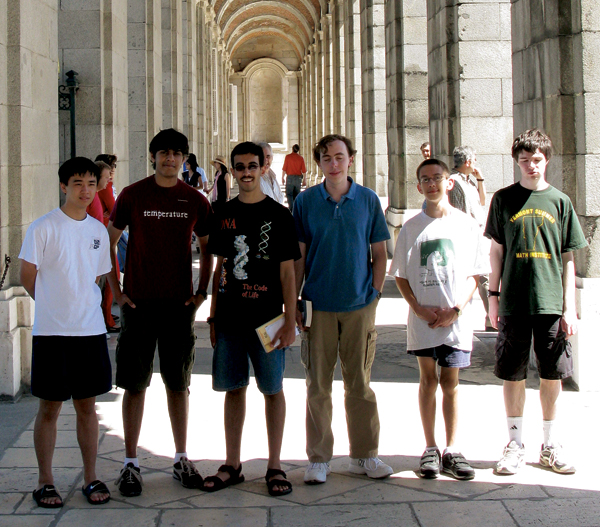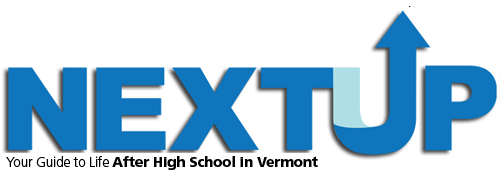If you thought the fundamentals of Calculus would never show you the world outside the classroom, you’ve probably never heard of Essex’s Colin Sandon.
In the past year, the 18 year old finished in the top six of the United States Mathematical Olympiad, held in Washington, D.C. and then finished 12th –– a gold medal finish –– at the International Mathematical Olympiad in Madrid, Spain as part of the American team. Sandon’s performance in Madrid was good enough to beat more than 500 of the best high school age mathematicians from 97 countries. USA finished third as a team, behind China and Russia.
One of two Vermonters to finish in the top 12 at the national level this year, Sandon has been participating in math competitions since grade school and has taken six semesters of math at UVM.
How long have you been participating in Math competitions, and what got you started in them?
A while. I originally took the UVM math test in fourth grade –– it’s intended for high schoolers.
What did that involve, what math subjects?
Pretty much math, Geometry and some Algebra.
Was that what got you into math, or was it something else?
Well, I’ve liked math for as long as I can remember. I know there was some incident a long time ago when my father wrote three algebraic equations on the white board and challenged me to solve them. I eventually figured I could add or subtract them and I succeeded.
How old were you then?
Seven.
How did you do in that first UVM math competition?
Pretty well, I think. In eighth grade I tied for second place.
What were you doing in math at school that early?
In third grade, I had a tutor teach me Algebra and then he taught me Algebra 2 in fourth and fifth grade. In sixth grade I took geometry, in seventh grade my tutor taught me Pre-Calculus and in eighth grade I commuted to Essex High School to take AP Calculus.
Other than being able to take Math courses at Essex and UVM, what were some other advantages or benefits you think you’ve had growing up in here in Vermont?
Primarily, just the willingness of everyone to figure things out. I’ve been able to have a tutor and commute around and everyone’s accepted that and arranged my schedule in such a way that it works.
Who inspired you when you were younger, who did you look up to?
My father, who taught me a bunch, and Mr. Chaffee, my tutor.
What’s your favorite thing about Vermont? Favorite place?
There are a lot of options for that…I really like winter. It snows and the whole world changes its appearance. Plus it makes you appreciate it being warm more.
What was the International Mathematical Olympiad like? What did you enjoy the most? What was the best thing about Spain?
We all met up at the airport, flew over to Madrid and spent a couple of days adjusting to the time change before the competition started. There were the opening ceremonies, then we did math problems for nine hours. Then we went on some outings while they graded the tests and ended with the closing ceremony.
Was that nine hours of math in one day? How many questions were there? Did you use the whole nine hours?
It was over two days. We had three questions each day. On day one at the end of the time I was trying to fix the mistake I made on problem two. On day two I was still trying to figure out the answer to problem six and not really getting anywhere – so I suppose you could argue that I didn't need all the time, or that I needed more.
What was your favorite part of the trip? Was there any place that took your breath away?
I still haven’t decided. Either the math or getting to play games with all of the participants…Toledo was interesting. It’s a very old city, which gave it a good feel, and El Greco liked to paint there. [Toledo was the original capital of Spain, before Madrid.]
What are some of your favorite things to do in your free time?
Computer programming, reading, computer and video games, card games and any interesting math problems.
Any advice for people wanting to improve their math skills?
Hm. Well, obviously practice. You should probably think about what you’re good at and what you’re not good at – you could get better at using a specific technique or try to find different techniques that work better for you.

